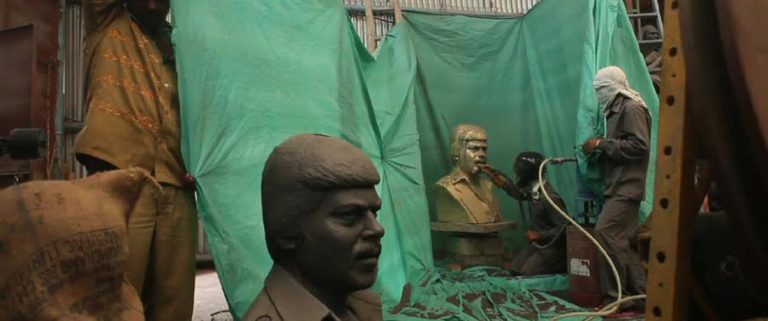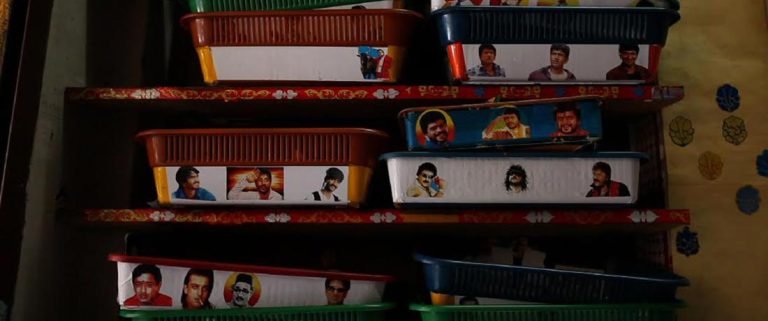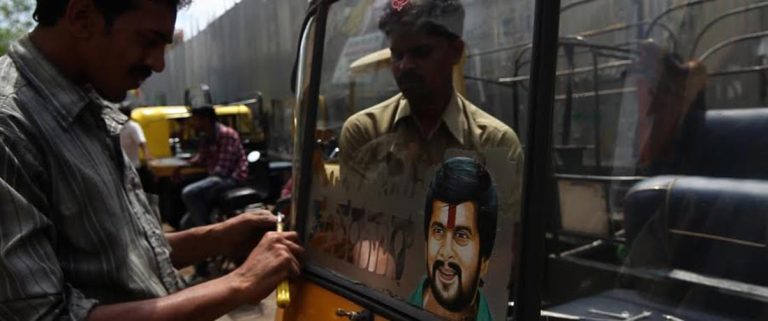


Bangalore is another metropolis of India. The stories of the auto-drivers in the documentary are survival stories of millions inhabiting big cities of the world. The twist in Bangalore’s tale is Shankar Nag. No other city has an actor who died 20 years ago, still breathing through auto-ricksha windshields.
In the race to become a ‘global’ city, the struggle is as much in holding on to the familiar as it is about embracing the new. How does one seek the familiar, when the familiar is not the same anymore? What does it take for Ramanna, Mahadeva and the Auto-drivers at Shankar Nag Auto Stand, 8th Main Road, Basaveshwarnagar, to ‘belong’ in Bangalore today? How does Shankar Nag fit into this story about identity and belonging?

After a Post-graduate diploma in Social Communications Media from Sophia Polytechnic, Mumbai, Sushma joined the CIEDS Collective Here, she conceived and executed a film education programme for school children. Post this experience, she worked as Assistant Director and Scriptwriter with filmmaker M.S.Sathyu for 4 years. She began making documentaries in 1998.
As Producer / Director, her focus has been on documenting the work of grass root organizations working in Karnataka’s remote villages. Her films have been used as communication tools by these organizations to further engage with the people they work with. Her work encompasses a wide spectrum – about people’s co-operatives, leadership imaging as participatory research tool, training modules for blue collar workers, issues relating to water, women and violence.
Her concerns with the city in transition led her to produce and direct her first independent documentary WHEN SHANKAR NAG COMES ASKING. Her last short film SHEELA GOWDA AT BATTARAHALLI CORNER was screened at the 13th IAWRT (International Association of Women in Film and Television) Festival. Along with 4 other filmmakers, Sushma is part of Vikalp Bengaluru, a group which has been screening documentaries in the city since 2005.
